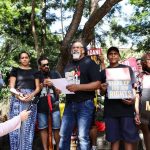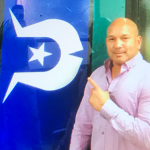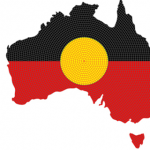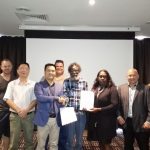Noongar Not for Sale: Indigenous Activists Fight Government and Mining Interests
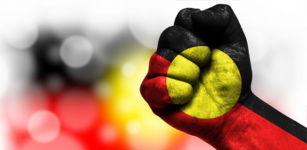
The Federal Court ruled that the Noongar Native Title Settlement was void on 2 February last year. In what became known as the McGlade decision, the court found the agreement between the Noongar people and the WA government was invalid as not all native title claimants agreed to it.
This decision left the government and mining interests shaken, as the newly established requirement that all claimants must sign an Indigenous land use agreement (ILUA) for it to be approved threatened around 125 agreements that had already been registered, as well as the proposed Adani ILUA.
The attorney general George Brandis reacted by rushing into parliament a fortnight later with a piece of new legislation that would render the court’s decision invalid by amending the Native Title Act. Dubbed the Adani bill, the legislation was passed with bipartisan support the following June.
The South West Aboriginal Land and Sea Council (SWALSC) re-lodged the six ILUAs that make up the Noongar agreement with the Native Title Registrar in August last year. The $1.3 billion native title deal – the largest in Australian history – was again given the green light last month.
However, those within the Noongar community who’ve been opposed to the deal since negotiations began back in 2009 are set to dispute its validity once more. And the Noongar Not For Sale campaign is currently raising the funds for another court challenge.
Dispossession for temporary compensation
“They want us to surrender our legal rights to our land in return for the package,” said Noongar activist Marianne MacKay. “That means no negotiations for mining. No negotiations for development on land. We’d have no say at all over our land.”
In exchange for surrendering their native title rights over an area of 200,000 square kilometres in WA’s south west, the estimated 30,000 people of the Noongar nation would receive a benefits package of $50 million a year paid into the proposed Noongar Boodja Trust over a 12 year period.
“When that funding runs out we can never approach government for anything,” Ms Mackay told Sydney Criminal Lawyers®. “And all the mining minerals and everything belong to the Crown and the state of Western Australia.”
As a recent Welcome to Country article pointed out, if the $1.3 billion involved in the total deal was broken down and shared between the 30,000 Noongar people, it would mean each individual is being asked to hand over ownership of their ancestral lands for a little in excess of $43,000.
Defending sovereign rights
Ms McKay explained that traditional owner Naomi Smith is leading the campaign to launch fresh court action against the agreement that’s now being referred to as the South West Settlement. Ms Smith was one of the four claimants who took the case to court last year.
At that time, the Federal Court ruled that five of the six ILUAs weren’t valid as the four individuals mounting the challenge had not signed them. And this decision was said to put the process of establishing ILUAs more in line with Indigenous decision-making processes.
The lawyers who last year led the successful challenge against the Native Title Registrar, the state of Western Australia and the SWALSC will be representing the opponents of the native title agreement once again.
Undermining the courts
Passed on 13 June last year, the Native Title Amendment (Indigenous Land Use Agreements) Bill 2017 reversed the precedent set by the McGlade decision, so that only a majority of traditional owners need to agree to an ILUA for it to be approved.
This restored the 2010 Bygrave decision, which was a ruling by a single judge of the Federal Court that initially established the majority support requirement for an ILUA to be successful.
According to Ms McKay, the passing of the amendment bill laid bare the racism in the system. “We fought for our right and won the case,” she said. “The government didn’t like it because the Adani project was going to be cancelled or put on hold and cost a lot of money.”
The Yoorgabilya woman questions how the federal government could make such a move, because she believes if the government’s going to amend the Native Title Act every time a court decides in favour of First Nations peoples’ interests it undermines the concept of the separation of powers.
The Australian Constitution establishes three separate powers of governance in this country. The legislative branch – the parliament – creates the laws. The executive branch – the ministers – is charged with administering them. And the judicial branch – the courts – serves to interpret the laws.
Misrepresentation
Ms McKay is also highly critical of the role the South West Aboriginal Land and Sea Council has played in the establishing the Noongar Native Title Settlement, which was originally signed in mid-2015, while the Barnett government was still in power.
During the negotiations that began in 2009, the SWALSC was representing the six Noongar claimant groups. However, as far as Ms McKay is concerned, this really wasn’t the case. “They fooled a lot of our people,” she explained, “while they were lining their own pockets.”
“The land council didn’t have the mandate of the people to speak for us,” the long-time activist continued. “They speak for the government. They’re there to manage lands under native title, not as a representative body for our people.”
According to Ms McKay, the SWALSC hand-picked local people who it was sure would agree with the government’s proposals. And it failed to find representatives from all the different family groups from the Noongar nation.
A struggle that continues
Ms McKay was a prominent figure during the 2015 Noongar Tent Embassy protest that was established at Matagarup: an island situated in the centre of Perth. The camp was established in part to fight against the Noongar Native Title Settlement.
However, then premier Colin Barnett repeatedly ordered the WA police raid the camp. And this constant persecution from the authorities, Ms McKay recalls, eventually led many of the protesters to give up on the cause.
The embassy protest was one of the most visible aspects of the campaign against the native title agreement that has been going on for close to a decade now. “We’ve been opposed to it,” Ms McKay stressed. “And we’ve all been fighting against it.”
And now it seems the Noongar activists are once again set to continue the fight for their country.



